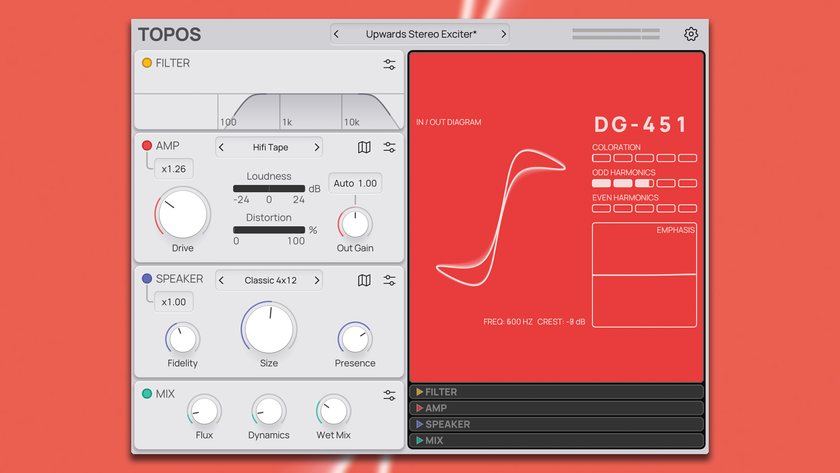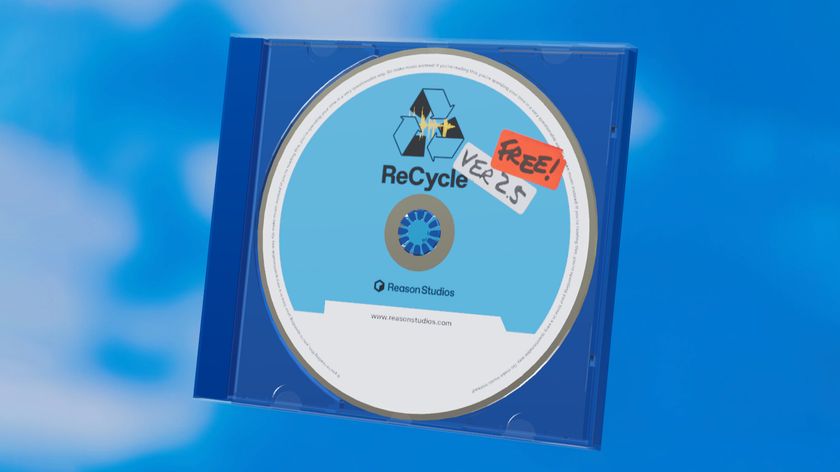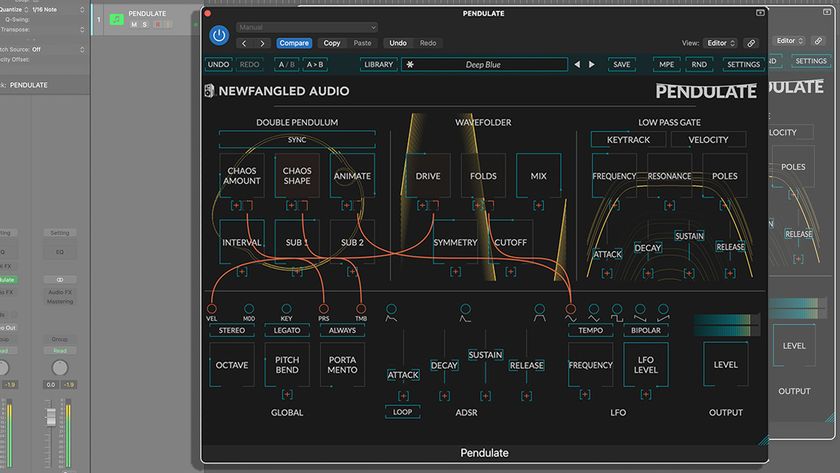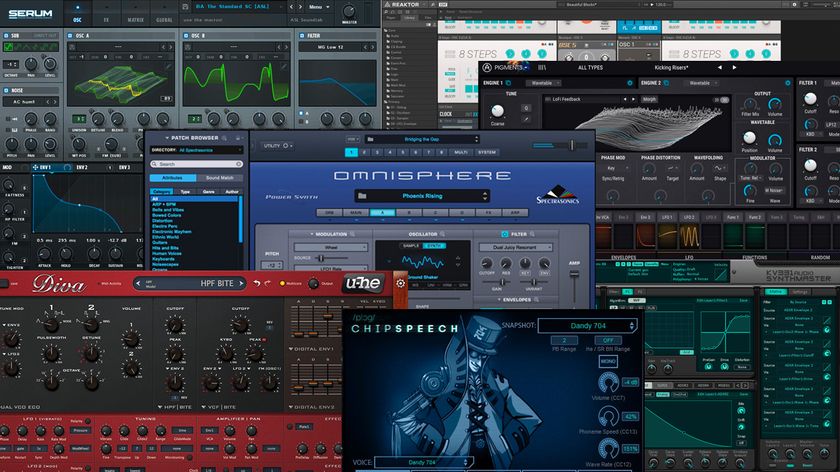Is high-end music software being dumbed down?
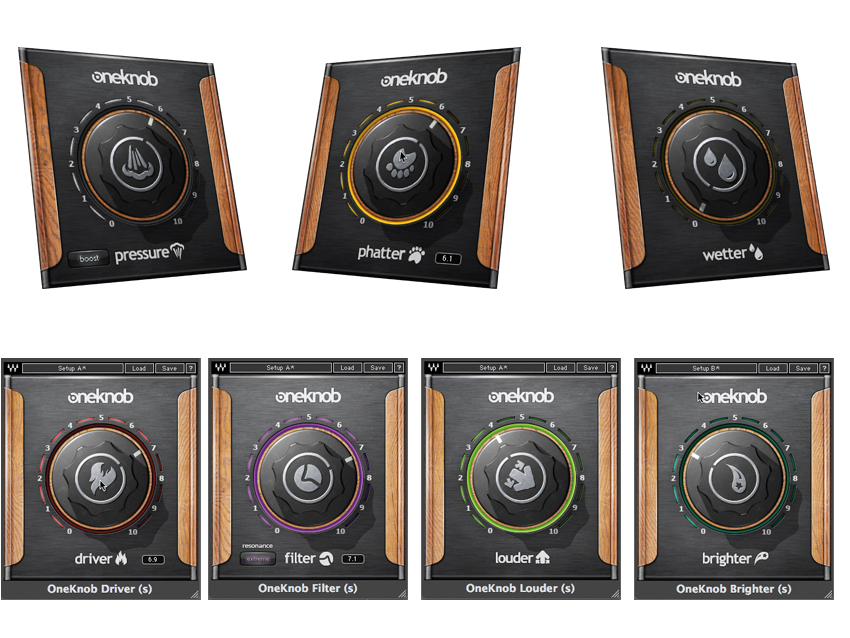
Older generations are often inclined to complain to younger ones that they don't know how easy they've got it, and this trait is very common in the field of music technology. The long-toothers have got a point, too: just a decade-and-a-half ago, the idea that we'd be able to produce pro-sounding music entirely within a computer and using only affordable software would have been unthinkable
Everyone's benefited from the ways in which technology has made things easier, but recently, an argument has sprung up that says certain software products are making music production too easy. It's one thing to have the convenience of computer-based systems, say the old guard, but if your tools are actually negating the need to learn the basic principles of mixing, effects processing, etc, something's going wrong.
This debate was brought into focus earlier this year when Waves - which had already released several products in its Signature Series that packed producers' processing chains into single plug-ins - announced its range of OneKnob effects. With names like Brighter, Phatter, Louder and Wetter, these effects - as their collective name suggests - are controlled with a single knob. All the complex parameters are concealed from the user: all you need to do is turn the effect up or down to taste.
It's all very neat and tidy, but who are these plug-ins for, and how are they designed to be used?
Open to all
"The OneKnob plug-ins are designed for anyone who wants to get better-sounding tracks fast," says Waves' Director of Product Marketing Shachar Gilad. "This includes musicians who are more interested in making their music sound better than in the art and science of audio, as well as professional mixing engineers who want to dial in a high-quality effect fast."
This is all well and good, but let's not forget that this is Waves we're talking about - a company that has its traditional, multi-parameter plug-ins installed in professional studios around the world. Is it really now saying that you can produce release-quality music using single-control processors?
"Sometimes, musicians and engineers want the result… to stay focused on the music rather than the process of mixing." Shachar Gilad, Waves
"There were days when great music was recorded, mixed and released on equipment that had far fewer options or parameters than today's entry-level digital audio workstation," argues Shachar Gilad. "The idea with OneKnob is to provide go-to tools that focus on one type of sound enhancement, and do it well. The processors behind the OneKnob are the same high-quality processors used on many hit records.
Get the MusicRadar Newsletter
Want all the hottest music and gear news, reviews, deals, features and more, direct to your inbox? Sign up here.
"A lot of thought went into designing the OneKnob plug-ins so that they work well on many types of source material, with different points on the scale complementing different instruments."
How, then, does Waves respond to the criticism that products like OneKnob are making things too easy? Shachar Gilad stressed to us that the company is committed to educating people about music production via webinars, YouTube videos, books and more, but also points out that: "Sometimes, musicians and engineers want the result. They don't necessarily want to learn at that moment, they just want to 'get there' and enjoy the ride, and stay focused on the music rather than the process of mixing. The OneKnob plug-ins are perfect for that.
"For example, a guitarist may want to focus on playing his or her guitar, and not learning about why the reverb in his Fender amp sounds good or how it works. The reverb has one knob and it just makes the guitar sound better - thereby inspiring the guitarist. An LA-2A [hardware compressor] doesn't have controls for attack and release, but it has made many records sound better, and that's what's important. If a user can use the Wetter plug-in to make themselves or their artist sound better fast (in the studio or in a live environment), or throw on the Pressure plug-in and have the drums snap and pump, or use the Filter on the full mix to get instant satisfaction, then that is a great thing. If an aspiring engineer wants to learn what a reverb or filter are, and how to create and tweak one from scratch, we have tools to help them to do that as well."
"I don't buy into this 'If I had to sweat to learn what these knobs do then everyone else should have to too' mentality." Erik Phersson, Toontrack
Easy mixing
Coming from the standpoint that all that matters is the end result, this argument makes a lot of sense, and it's one that's also picked up on by Toontrack, which released the EZmix plug-in in 2010. This provides mixing presets for a variety of different instruments; there is a small amount of scope for tweaking, but the idea is that it does away with chains of effects plug-ins, packing everything into one and keeping the inner workings hidden from the user.
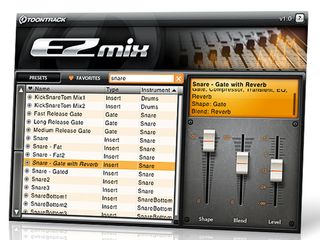
When asked to respond to accusations that products such as EZmix will deter people from learning essential music production skills, Toontrack's Head of Development Erik Phersson says: "I can understand where [the critics] are coming from, but in my opinion that's a bit like accusing an artist of fraud when he hires a more experienced musician to play the solos. Yes, there are people that think that you should play every instrument on your record yourself, but in the end not many care as long as the end result is good. I don't buy into this 'If I had to sweat to learn what these knobs do then everyone else should have to too' mentality."
Again, if we assume that the goal of music software developers should be to help more people create better-sounding tunes, it's hard to argue with Phersson's logic. We should also remember that the ways in which effects plug-ins are being used is changing. While previously they were designed almost exclusively for studio use, we're now seeing them being employed on stage - and in this environment, it's desirable that the number of tweakable parameters is kept to a minimum.
Shachar Gilad alluded to this in his defence of the OneKnob plug-ins, and the concept is also the starting point for the launch of Turnado, a new multi-effect unit from Sugar Bytes. This plug-in is designed specifically for real-time audio manipulation - and live performers in particular - and adheres to the same 'one knob per effect' philosophy as Waves' new releases. What's more, Native Instruments' Traktor DJing software adopted such a mode of operation some time ago now, giving DJs easy one-knob access to effects.
Ultimately, what we're seeing isn't so much the dumbing down of computer music as a widening of choice. If you want to be a great producer, nothing will ever beat learning how and why effects processors are used, but if you've recorded a song and simply want the fastest and simplest route to bringing it up to sonic scratch, the number of options open to you has never been greater.
Liked this? Now read: The ultimate guide to VST plug-in effects
Computer Music magazine is the world’s best selling publication dedicated solely to making great music with your Mac or PC computer. Each issue it brings its lucky readers the best in cutting-edge tutorials, need-to-know, expert software reviews and even all the tools you actually need to make great music today, courtesy of our legendary CM Plugin Suite.

